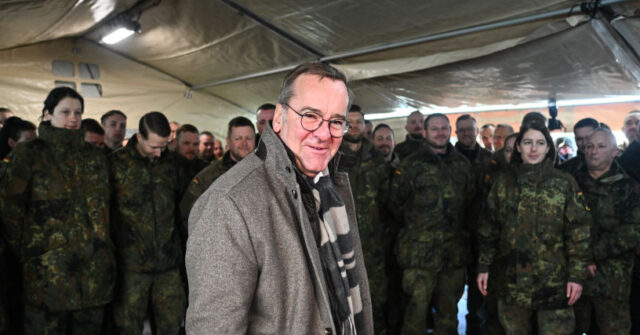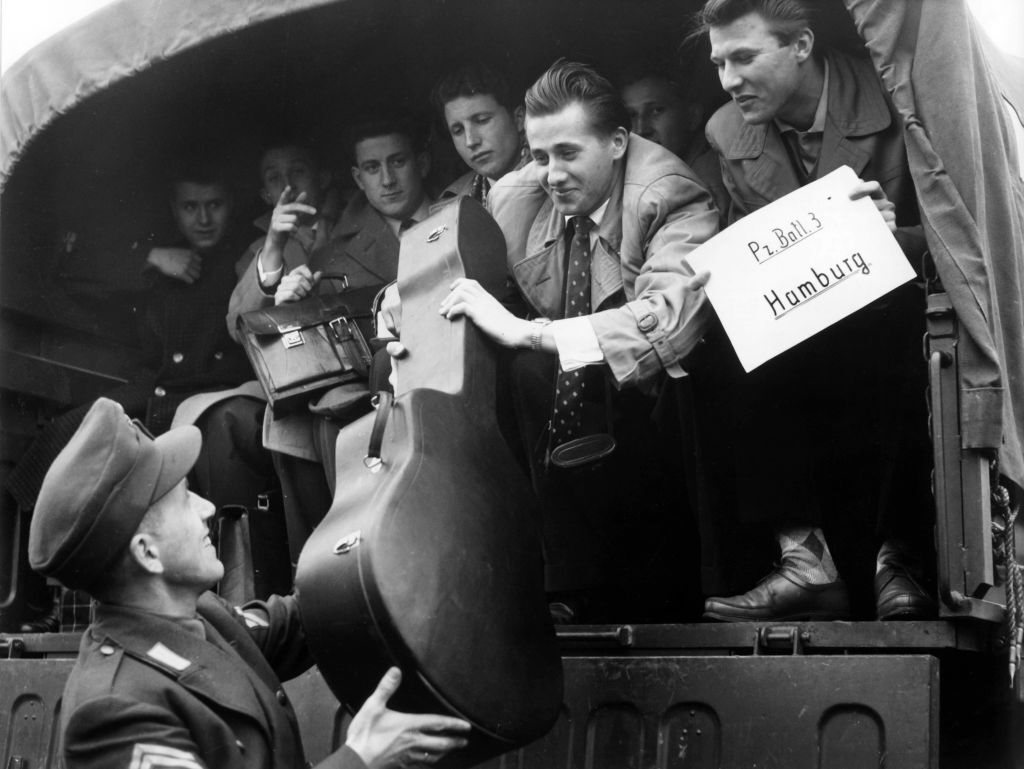


The outcome of the German Federal elections this week will likely determine whether conscription will return to the country as the government finds itself thousands of soldiers short of what it thinks it needs.
Germany’s present defence minister, whose government faces the public in national elections this week, says the country now needs to “bite the bullet” and radically expand its military. This would include bringing back the draft to seriously boost troop numbers, lest the country be left at “the kid’s table” in global affairs, including the Trump peace talks, he said.
Th left-wing politician’s previous attempts to force this question stumbled under the present coalition government, but enough German political parties now support some form of legally compelled military service that its return appears increasingly likely after Sunday’s election.
According to a review of the publicly stated positions of German political parties, going into this Sunday’s nationwide elections the presently ruling Social Democrats (globalist soft left), the CDU who are likely to replace them (globalist soft right), and the insurgents polled to come second place (AfD, populist sovereigntist right) all support some form of conscription. Between those parties at least, several likely future German governments are covered.
Opposition to the idea is most pronounced in Germany amid the hard left parties, but they are not likely to be in the new government. German newspaper Taggespiegel states this week that bringing back conscription is likely to be a priority for the new government, given the present size of the military is tens of thousands less than the current targets, and they will almost certainly rise if the U.S. withdraws troops from Europe.
Just deploying 5,000 troops to Lithuania this year for a NATO mission is seen as a major hurdle for the German army.
The urgent need for Europe to boost its rock-bottom defence spending to better stand on its own two feet, both to stand up to Moscow and to be a good ally to the United States has been a major talking point in NATO circles now for years.
That this would require some very tough decisions — Europe’s decades of generous welfare programs may have been possible to some extent by cannibalizing what would otherwise have been a sufficient defence budget, made possible by getting a free ride off U.S. global security — but German defence minister Boris Pistorius thinks he has an answer: debt.
Speaking to The Times of London, the left-wing lawmaker said his answer to cutting that Gordian knot is simply not to choose between security and welfare at all, but just to pay for a new, bigger army with tomorrow’s money. This would have to be achieved by amending the German constitution to remove constraints on how much of a deficit the government can run because forcing the country into a “guns versus butter” debate the paper notes the leftist politician fears “would poison society.”
File/Some 900 West German conscripts from North Rhine-Westphalia arriving at the barracks in Hamburg on 1st April 1957. One of the recruits could not leave his musical instrument at home. Young men were recruited for Bundeswehr for the last time after 50 years of conscription on 3rd January 2011. (Gerd Herold/picture alliance via Getty Images)
He expressed it thus: “…a competition between welfare spending and defence spending is something I cannot abide. It will open trenches in our society that [would] not help our endeavour to strengthen our security.”
Pistorius told the paper: “We need an honest debate about the fact that we must incur debt now to ensure our security… This is an investment in our future and our children’s future, because ultimately security is the foundation for everything else — our prosperity, our society, our European way of life.”
This is important, he said, because Russia’s Vladimir Putin “despises western societies and independent minds” and will be ready to launch an attack on a NATO member state in “four to seven years”. In other words, the German does not believe a Trump peace will be a lasting peace.
As noted by the paper, the investment in Germany’s woefully under-funded military is so large it would entail spending more than Britain’s whole defence budget on top of what the military already gets. This would be a somewhat gradual process though and Pistorius accepts the German military is simply not capable of suddenly expanding today, and some of the extra funding he proposes would be needed for new barracks and training bases for the intake.
But how would conscription work in Germany? Last month Pistorius visited Sweden and expressed he has a “certain soft spot” for their conscription model, and Germany could go for a Scandinavian approach where all adult men and women are required to register for service, fill out a form with personal details, and to take a military medical. But the only ones called up are those who seem like they’d be most happy to join anyway. It isn’t purely voluntary, but in peacetime it’s as close as possible, and should war come the database of the whereabouts of every able bodies man and woman in the country is already up to date.
And any German hoping to avoid this fate given the pollsters predict Pistorius’s SPD party is to take a drubbing at the ballot box this weekend, may be disappointed. The likely victors the centre-right CDU support the notion of a mandatory 12 months of citizen’s social service for young people. While for some this may mean volunteering in a hospital or charity, for others it will inevitably mean basic training and an infantry course.
Conscription was ended in Germany in 2011 and has been in abeyance since.

